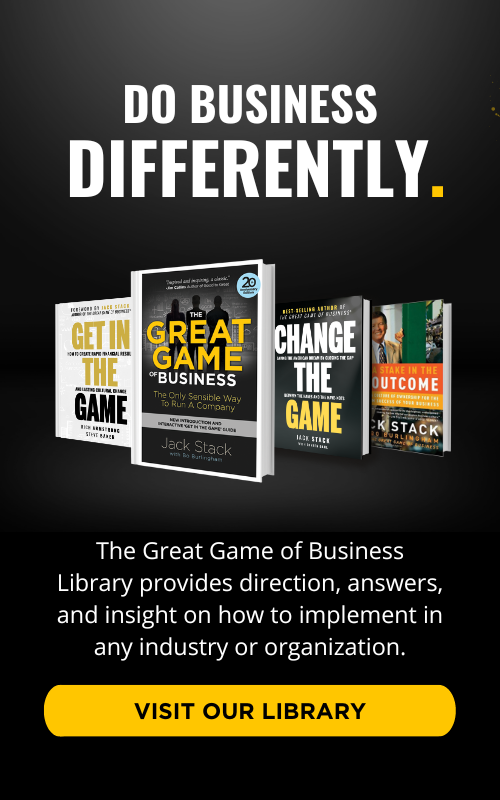When practicing The Great Game of Business® (GGOB), the breakthrough comes when companies shift from focusing on an event (bonus plan, financial literacy program, etc.) to using GGOB as an operating system to run their organization. GGOB is a system. It’s a pattern. It’s a strategy. It’s a way of thinking. If you want to fully leverage the power of Great Game™, you must treat it as a system and persistently work it.
Read More
Does it really work or is it just a bunch of hype? Boy, I wish we had a dollar for every time someone has asked us that question. I wish we had five dollars for every answer we've given. Let's see— that would be a debit to "cash" and a credit to "other income." Overhead, labor absorption, and materials would be unaffected, so we have raw profit going straight to the bottom line. Wonderful!!! Our stock value would be enhanced and our jobs secure. See, you're already playing The Game and you've hardly begun the book. Would it scare you if your employees thought like this? Would it scare you if you thought like this?
Read More
Surveys show that employees don’t usually participate in The Great Game of Business® until they feel comfortable with the numbers and with the whole idea of the GGOB. Fortunately, there are plenty of other ways to quickly build a sense of excitement and a feeling of empowerment within your organization. What is Employee Empowerment? It relies on a single core principle: giving employees the right resources, whether it's financial literacy education, hands-on training, or new tools, to make accurate decisions on behalf of the company. Benefits of Employee Empowerment Improved workplace culture. Heightened productivity. Better quality work. Organization-wide engagement. Here are 5 tips that will get your employees engaged and empowered:
Read More
# 1 - Recognition and Respect Great employees continue to prove themselves every day. Recognition and respect from peers and leadership further solidifies the bond between a great employee and the company. Respected employees stay because they would have to start over at ground zero at a new company. Once again working to earn recognition and respect from a new employer. Respected employees: help set and maintain the productive rhythm of the company. mentor others. step up when needed without being asked. have unique talents and expertise that are obvious. In return, the great employee's work and contribution earns them recognition and respect at all levels of the company, especially leadership. Again, the key word is "earned."
Read More
Why the online streaming company doesn’t believe in keeping secrets from its employees. In his new bestselling book, No Rules Rules, Reed Hastings digs into some of the cultural aspects that make the company he co-founded, Netflix, so successful. In the book, which is framed as a kind of conversation with Erin Meyer, a professor at the INSEAD business school, Hastings writes that one of the cultural values he instilled in Netflix from its very beginning was that there weren’t going to be any secrets. As he puts it, embracing transparency and letting go of secrets—what Netflix calls “sunshining”—brings incredible advantages in terms of building trust and empowering employees to think like owners. What’s interesting is that Hastings acknowledges it’s easy for leaders to say they are pro-transparency. No one goes around saying they want to promote organizational secrecy, right? But why then, he asks, do so many organizations not walk the walk when it comes to sharing things like the company’s financials with their employees?
Read More
Historically, businesses using traditional management styles have been reluctant to give all their employees the knowledge they need to make good business decisions day in and day out as they do their jobs. Open-book management takes a much different approach. It’s all about capturing and sharing both financial and organizational knowledge with every employee and empowering them to use that knowledge to contribute to the long-term success of the organization, as well as their personal success. The benefits of knowledge sharing are numerous, and here are just a few:
Read More
How often have you heard this: “All we ask you is to do the job, nothing more.” Well, I don’t want people just to do a job. I want them to have a purpose in what the hell they’re doing. I want them to be going somewhere. I want them to be excited about getting up in the morning, to look forward to what they’re going to do that day. Maybe it’s a matter of tricking people into wanting to come to work. I say “tricking” because I don’t think it’s a natural thing. Most people would rather be doing something other than work—I certainly would—but they feel they don’t have any choice. Companies reinforce that feeling. They not only tell people just to do the job, they set up the work so it is just a job. They say, “Drill as many of these holes as possible, as fast as possible, and don’t think about anything else.” That’s one way to run a company. What you wind up with are workers who think a job is just a job. I call them the living dead.
Read More
"Winning isn't everything, but wanting to win is." - Vince Lombardi Part of the magic behind The Great Game of Business® comes from tapping into the universal human desire to win. Give people a chance to win early and win often, and you'll capture their interest, keep them engaged and drive the success of your business. Whether you are just starting your Great Game journey, or just looking for a boost, inject some fun and focus by launching some departmental MiniGames™ and create the wins your team needs.
Read More
Every year I look forward to attending the Great Game of Business’s annual conference. Over the past 28 years, it’s always been an opportunity to improve—to receive an education on how we can continually improve upon the lives and those of the people working inside our companies and within the communities that support us. I chuckle when I think back to our first conference—what we called The Gathering of Games at the time—which we held in our hometown of Springfield, MO. We honestly weren’t sure how many people were going to show up. A few dozen intrepid souls did make the trip—so we decided to hold another conference the following year, moving it to St. Louis to make it easier for more people to attend. We built on that momentum year after year—building up our community of like-hearted Great Game™ players with each conference. While I have learned so much from the incredible lineup of speakers and presenters that have blessed the stage over the years, I’ve learned just as much—if not more—from the attendees themselves over a shared meal or a cold beer at the bar after hours. They have been my most cherished friends and teachers when it comes to how we can collectively reimagine capitalism.
Read More
“Business can be a step to make a positive difference in the world. It empowers people to pursue their dreams.” Those are the opening words that Jack Stack and I wrote in our new book, Change the Game: Saving the American Dream By Closing the Gap Between the Haves and the Have-notes. Our goal in writing the book was to share stories about the brighter side of capitalism. We wanted to show real-life examples about how we can create better lives for ourselves and our communities—and bridge the wealth gap plaguing our society—by teaching people the rules of business, helping them keep score, and by sharing A Stake in the Outcome®. We wanted to shed light on the positive ripple effect that results when you build a business of business-people who think and act as owners do.
Read More

.png)

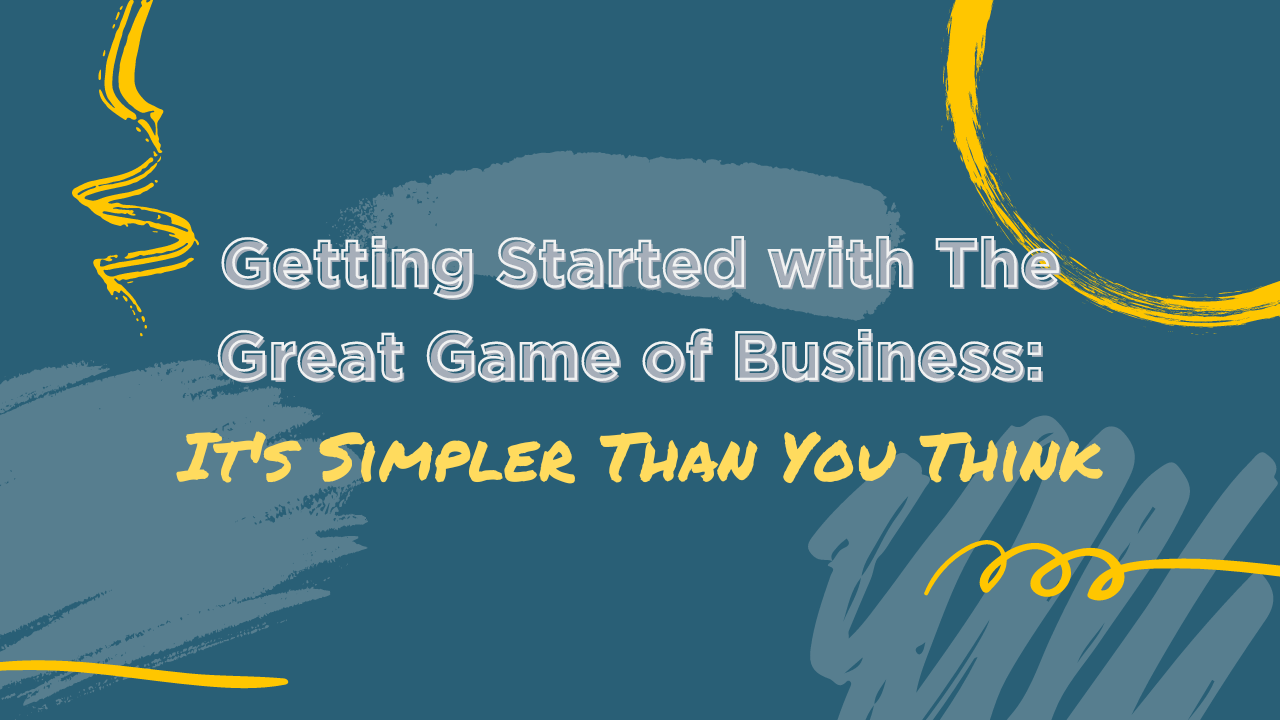
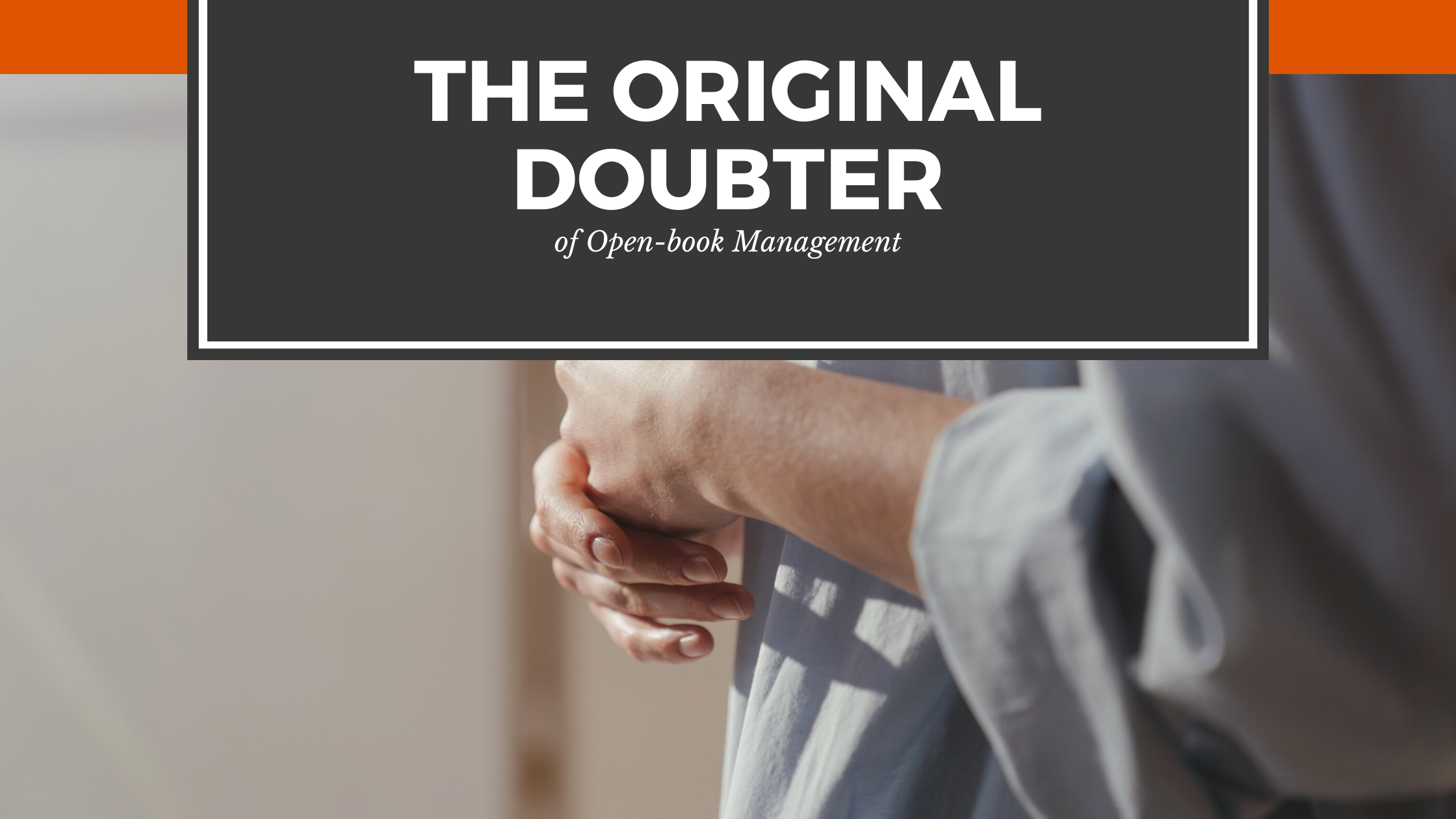
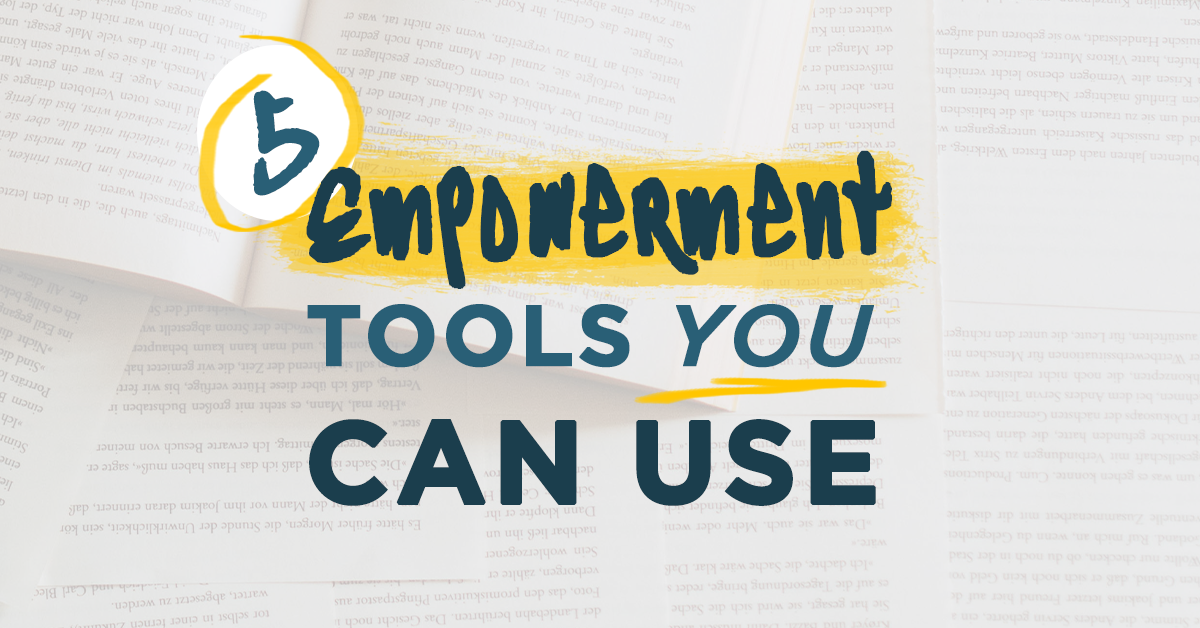
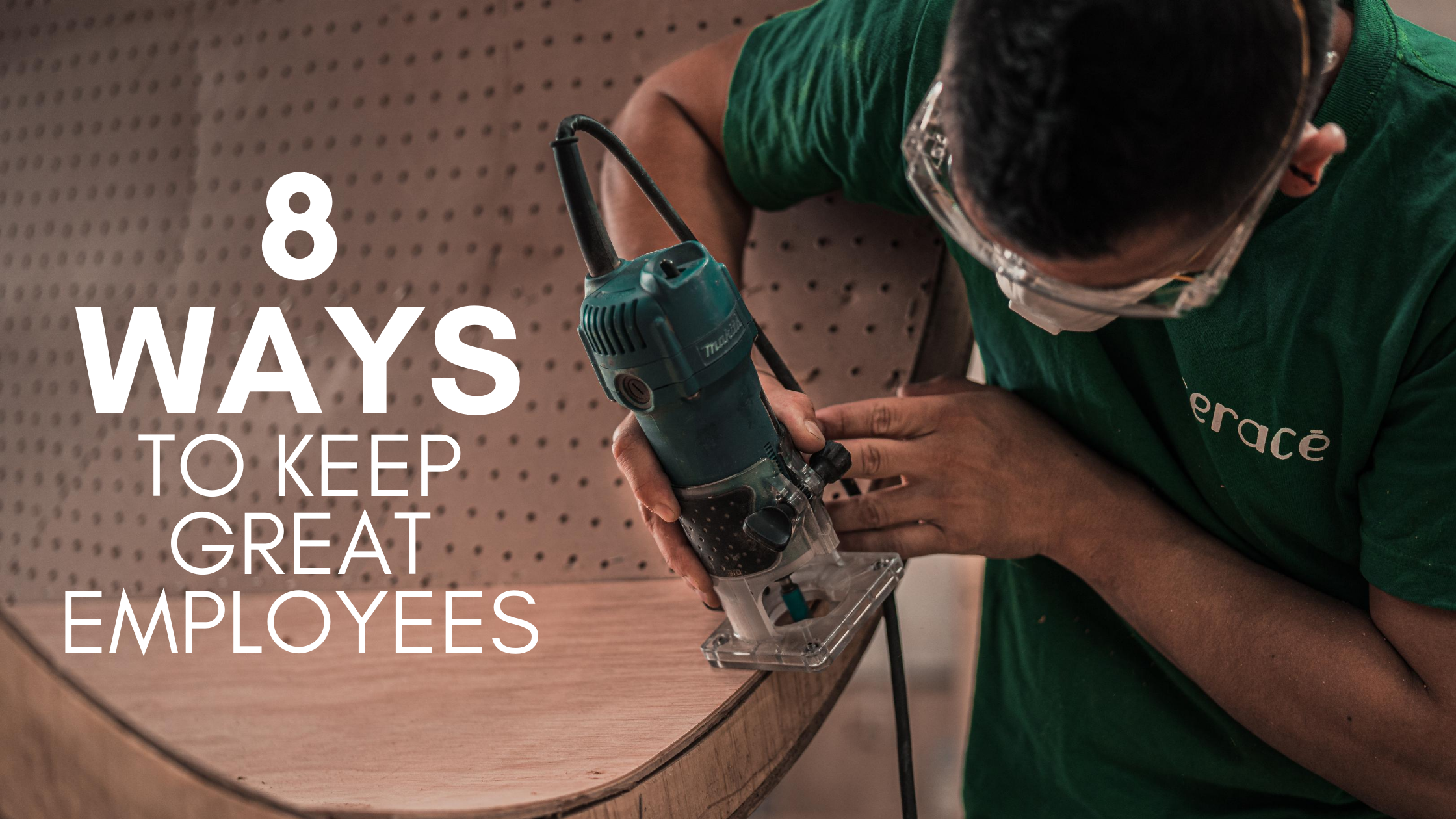
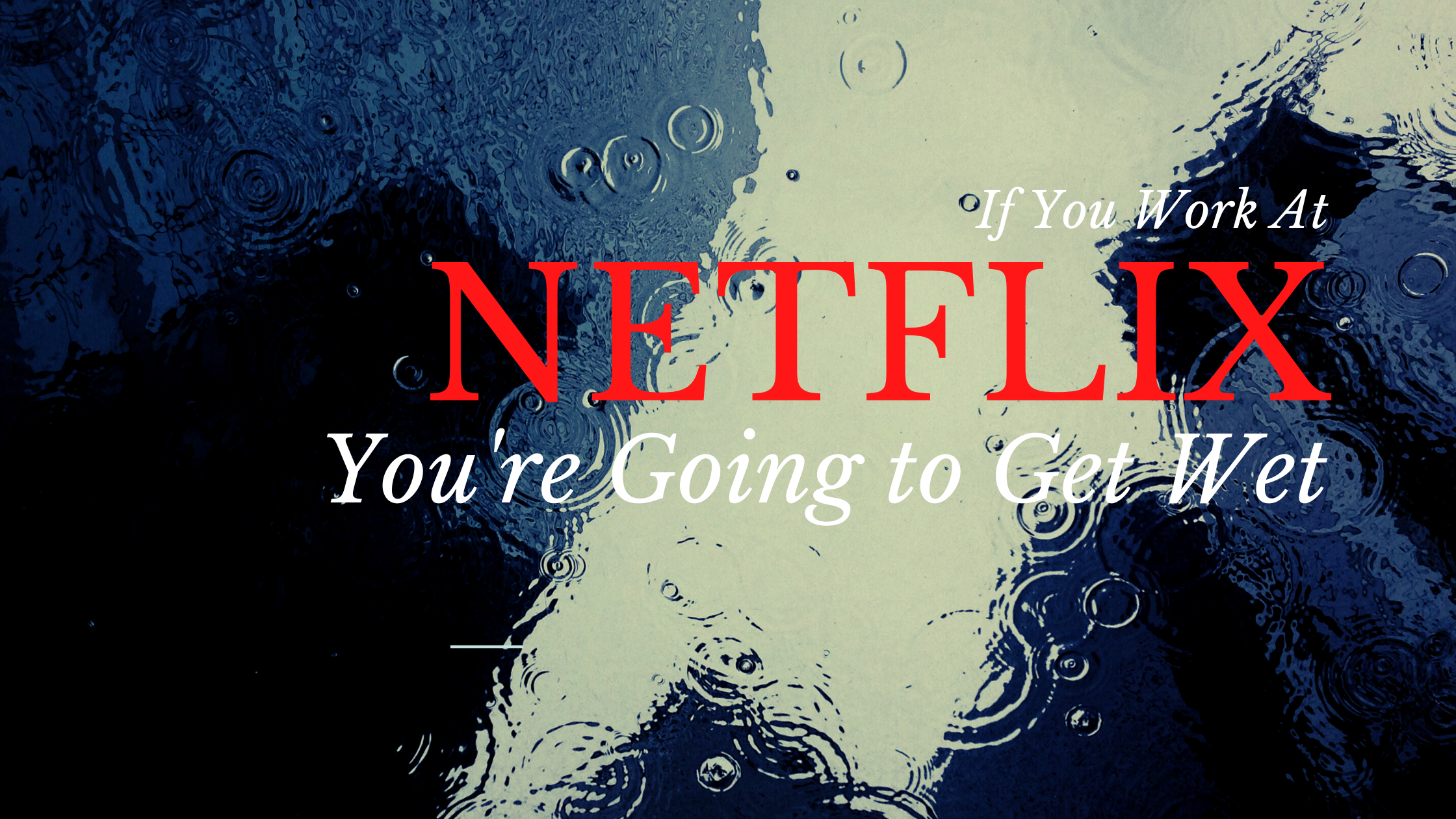
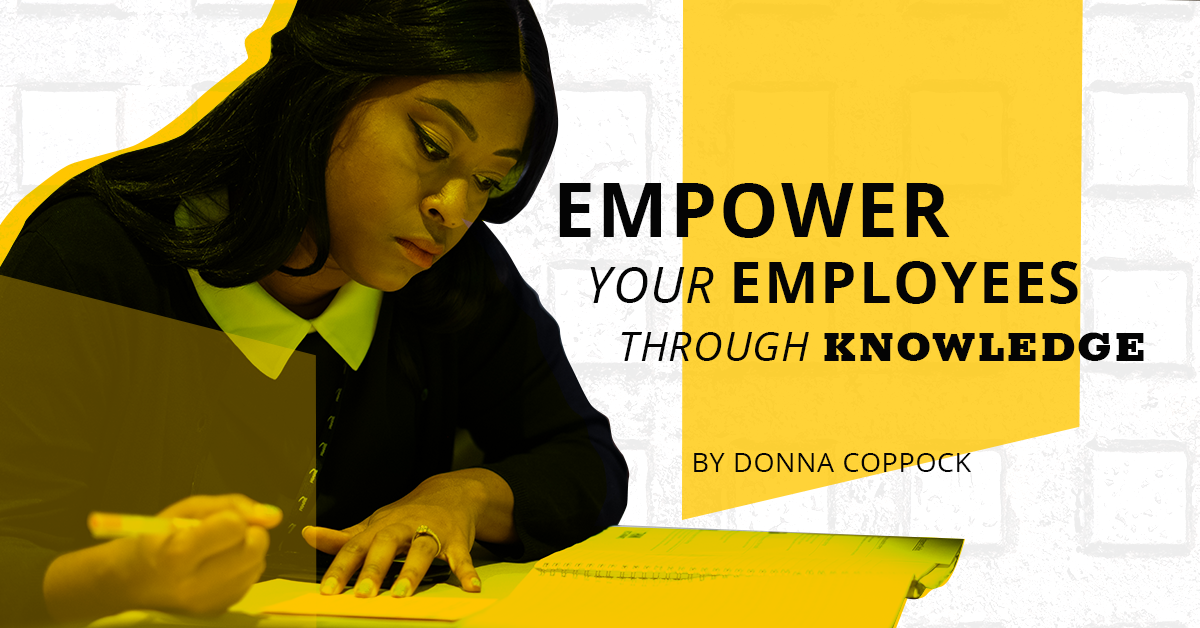
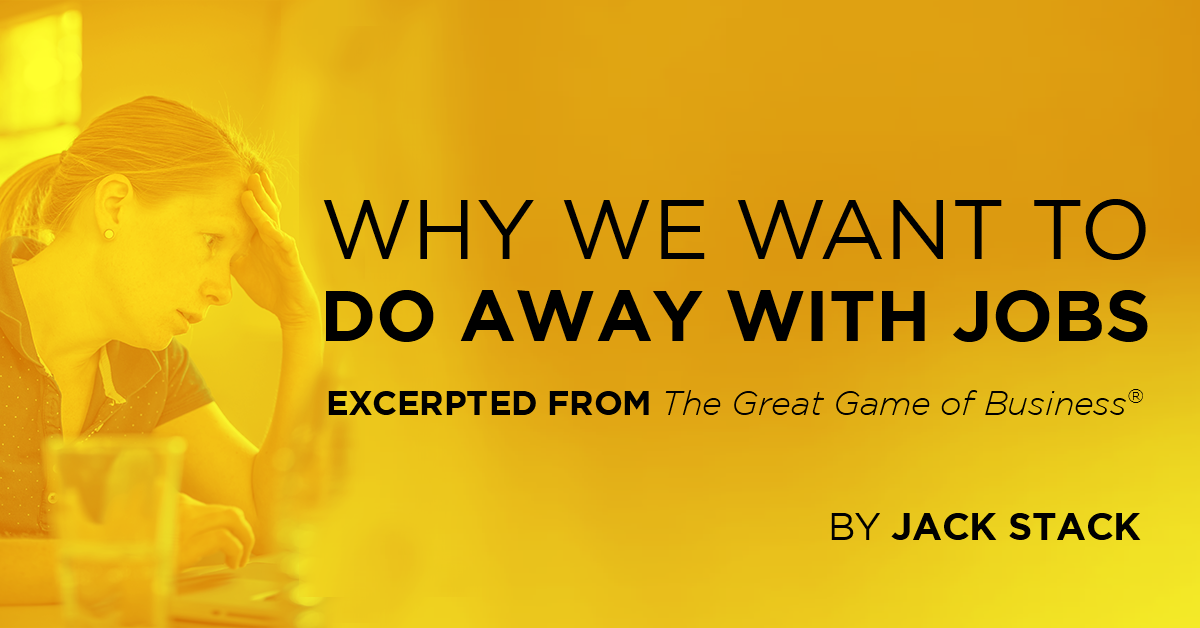

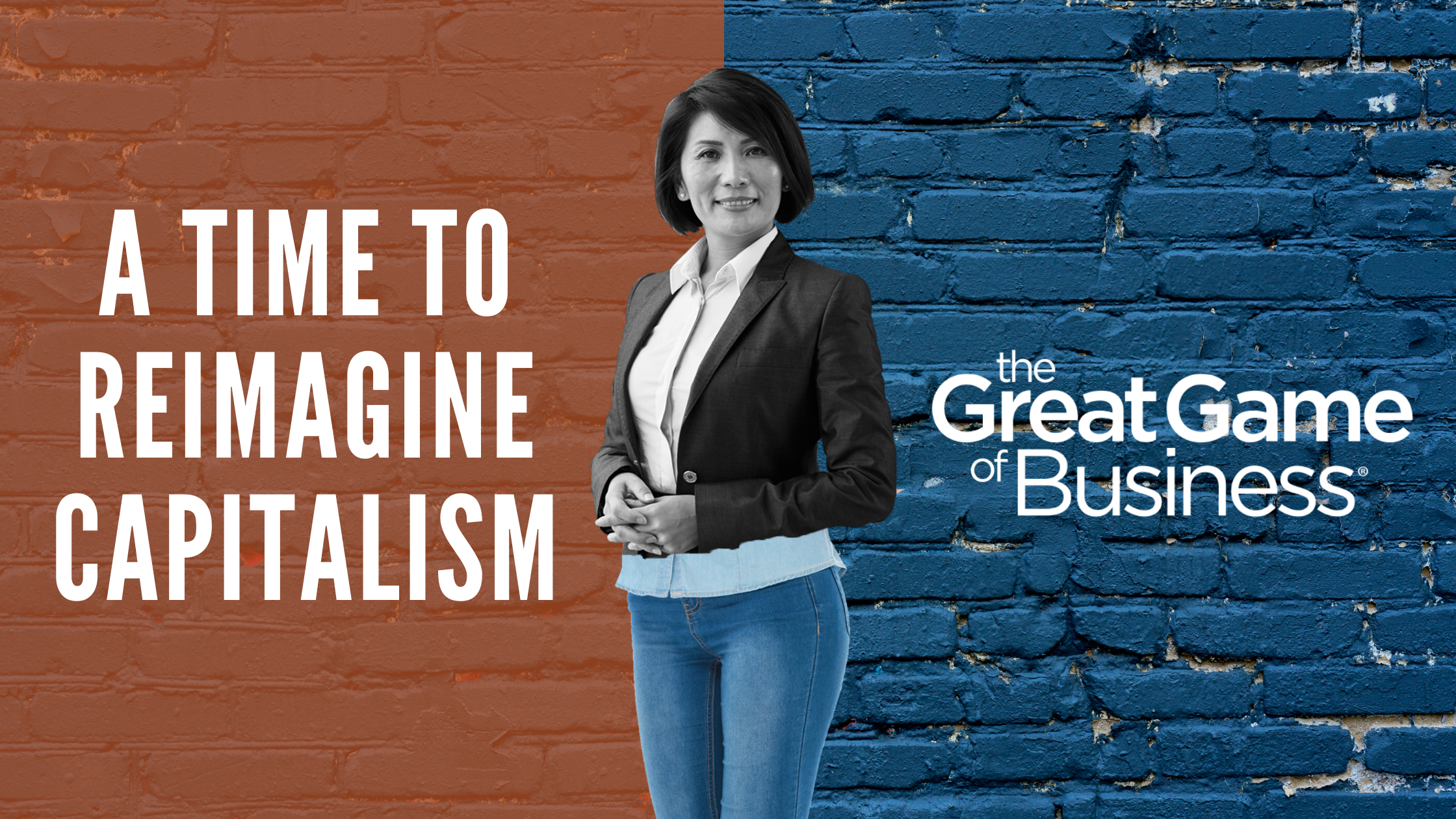
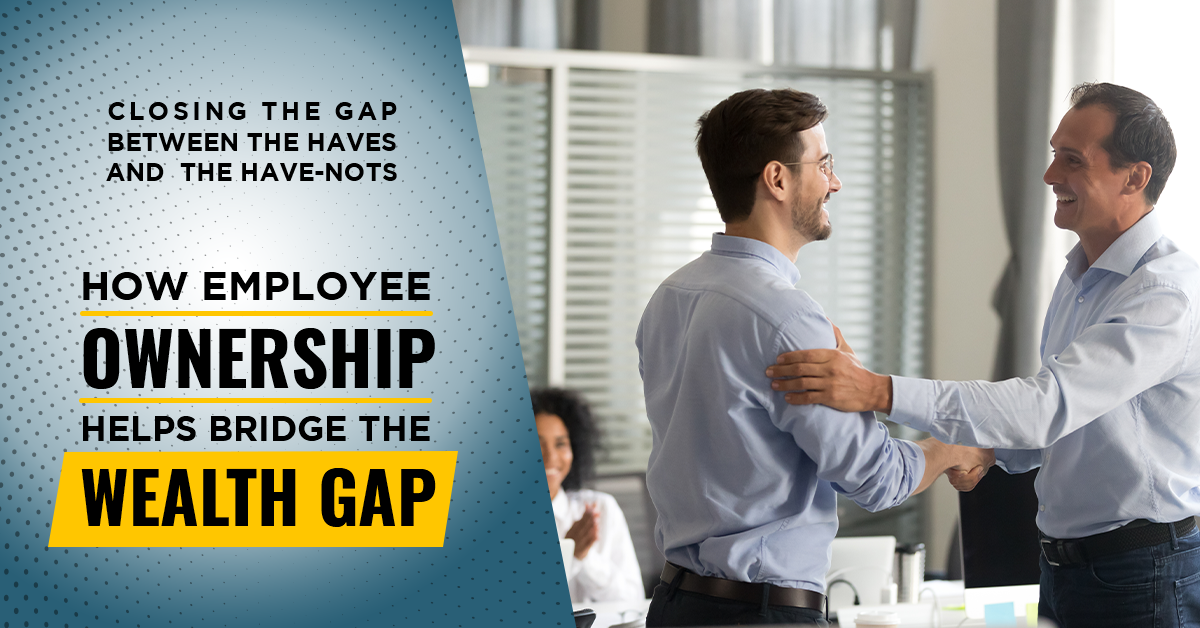




.png)




-5.png)
